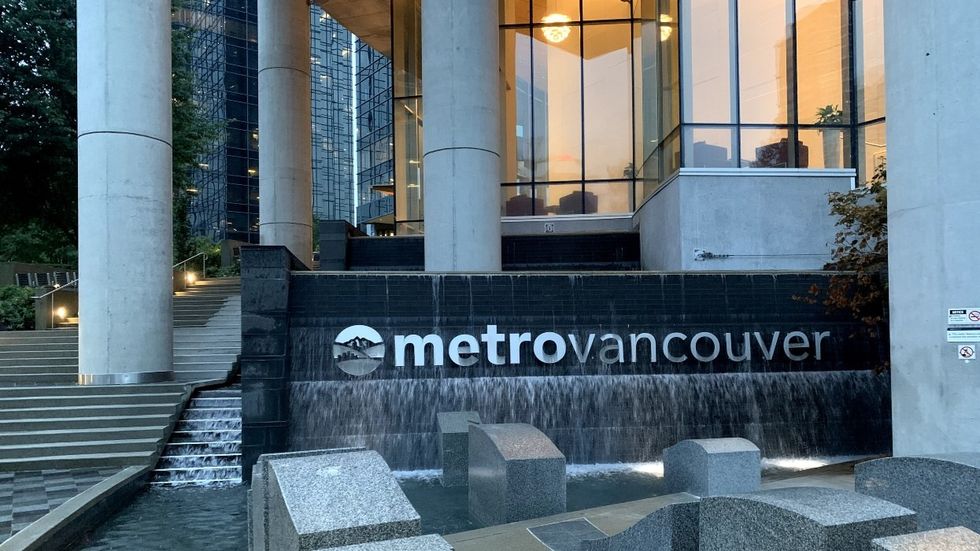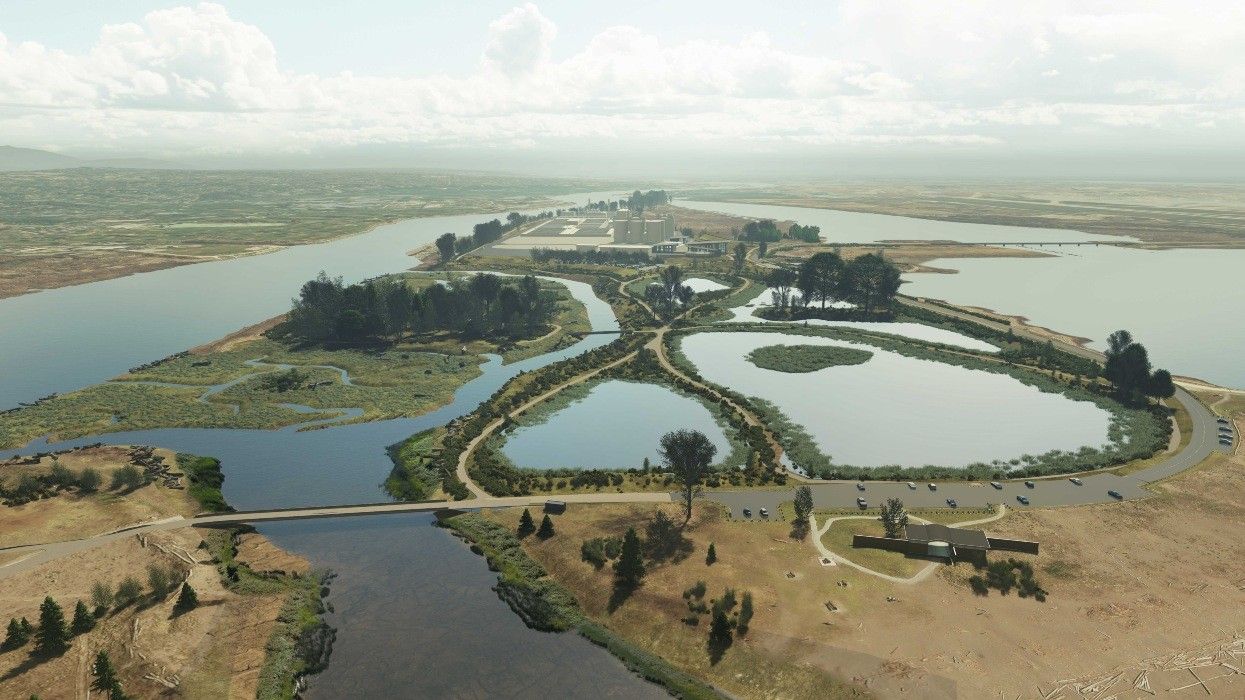The Metro Vancouver Regional District (MVRD) has reached an agreement with the Government of Canada that will see the MVRD receive $250 million in funding that will go towards the Iona Island Wastewater Treatment Plant.
The funding will be coming via the $6 billion Canada Housing Infrastructure Fund (CHIF) launched this year and will be provided over five years, starting in 2025-2026. The agreement is one of the first to be reached under the CHIF.
The agreement was confirmed to STOREYS by Metro Vancouver, who called it "an important next step in delivering this essential piece of infrastructure" and noted that the commitment matches the $250 million committed by the Province in 2023. The MVRD itself has also committed $250 million, which means funding has now been secured for the full $750 million first phase.
The Iona Island Wastewater Treatment Plant is located on Iona Island in Richmond, between south Vancouver and Vancouver International Airport. The treatment plant was built in 1963, processes approximately 200 billion litres of wastewater each year, and services around 750,000 people residing in Vancouver, parts of Burnaby and Richmond, the University Endowment Lands, and UBC, according to the MVRD.
The facility is currently in the process of being upgraded to handle the region's growth and to meet federal regulatory requirements, and the MVRD is simultaneously undertaking several ecological restoration projects pertaining to the adjacent Iona Beach Regional Park. The overall project has a total estimated cost of $9.9 billion and is currently in the early stages, with the MVRD granting a $60.6 million design contract to Fraser Delta Group in July 2024 for the first phase.
Metro Vancouver Development Cost Charges
As the funding is coming from the Canada Housing Infrastructure Fund, the question now becomes whether the Metro Vancouver Regional District will implement a freeze on increases to development cost charges (DCCs), which are set to increase on January 1 of 2025, 2026, and 2026, and became the focus of a letter-writing campaign this fall.
The Canada Housing Infrastructure Fund provides funding through two streams: the $1 billion "direct delivery stream" for specific projects and the $5 billion "provincial and territorial agreement stream" for governments to then distribute to lower-ranking governments.
Last month, the first stream began accepting applications on November 7 and governments looking to secure funding must meet two conditions to be eligible: adopt multiplex zoning in all low-density residential areas and implement a three-year freeze on increasing development charges above the rates as of April 2, 2024.
As first reported by STOREYS in our newsletter on Monday, December 2, the MVRD was preparing to apply for funding, but was noncommittal on freezing increases to DCCs.
"Metro Vancouver is exploring potential eligible projects for the direct delivery stream of the Canada Housing Infrastructure Fund, as the program is considering, on a case by-case basis, alternative measures adopted or to be adopted by municipalities to reduce the cost of construction of new homes and encourage developers to build more homes," the MVRD told STOREYS.
The allowance of alternative measures was not mentioned by Housing, Infrastructure, and Communities Canada (HICC) in its press release or even the homepage for the CHIF, but was in the fine print of the application guide.
"Applicants subject to [the development charge freeze] condition are expected to meet this condition as written, to be eligible," said HICC in the guide. "However, on a case-by-case basis, HICC may take into consideration alternative measures adopted or to be adopted by municipalities to reduce the cost of construction of new homes and encourage developers to build more homes. Alternative measures will need to be clearly detailed in the application, must be quantifiable, and be in place for a three-year period. HICC reserves the right to accept or not accept these measures."

Asked this week whether it had agreed to freeze DCCs now that it had reached an agreement for $250 million, Metro Vancouver would not say either way and deferred to the Province.
"This federal contribution, starting in 2025‒2026, is subject to Metro Vancouver meeting the conditions of the Canada Housing Infrastructure Fund which is currently under negotiation with the provincial government," the MVRD said in a statement to STOREYS. "Metro Vancouver is continuing discussions with BC's Minister of Housing and Municipal Affairs on the implementation of this program."
Reached for comment, the Province also declined to provide the details of the CHIF agreement and deferred to the feds.
"As discussions are currently ongoing with the Government of Canada, we cannot comment on the particulars of any proposed program until they have been agreed to by provincial and federal government," said the Ministry of Housing and Municipal Affairs in a statement to STOREYS. "BC is interested in ensuring program conditions work for both local governments and the province. As we move forward and continue to grow and build the homes we need, we are going to continue to advocate for BC and work with our Federal counterparts to look at ways to tie infrastructure costs more closely to housing starts and efforts to increase the number of homes that work for middle-class people and families."
STOREYS reached out to HICC on December 17, but has not received a response.
- Inside The Metro Vancouver DCCs And The Potential Housing Price Increases ›
- Wesgroup SVP Of Development Brad Jones On The Challenges With DCCs, REDMA ›
- Metro Vancouver Developers Link Arms, Take Aim At DCC Increases ›
- Metro Vancouver Proposes Expansion Of DCC Waivers Program ›
- Metro Vancouver Proposing Extension Of DCC In-Stream Protection Period ›
- BC Extends In-Stream Protection From Metro Vancouver DCCs To Two Years ›





















